What's in a winning political slogan? The documentary exploring 'gayby' babies, our live event on millennials and how they are redefining the American Dream.
Why Millennials Matter: A Take Two special from Cal State Fullerton
It was the day that Prince died. Take Two was on the road at California State University, Fullerton for a special show dedicated to all things millennial. The 170-seat Titan Student Union Theater was eerily quiet. Staff members huddled around smartphones trying to confirm the news, everyone refusing to believe Prince was dead. With word from base that the rumors were true, a chorus of "Prince? I don't believe it" echoed around the empty hall, before the team turned back to the work at hand. In a little under two hours, we had a show to put on. Would anybody come?
Strolling through the halls, Take Two producers found students slung over comfy chairs, reading, chatting and writing papers. Any tears? Don't think so. Outside, life bustled in the court yard. People shuffled to class. Anyone playing a Prince megamix on a loud speaker? No. The show would go on.
Planning
Millennial Matters took months to put together, but why do it? Generation Y - that's anyone born between 1982 and 2000, according to the Census Bureau - is the largest population in the United States, at around 83 million. Millennials are also the healthiest, most educated and diverse collection of people in the nation.
They also have a bad reputation in the media. Entitled and self-absorbed are two of the kinder descriptions to make it into a news story.
Here's KPCC's Steve Proffitt and Hettie Lynn Hertes with a few samples of millennial vitriol posted in the New York Times, Vanity Fair and Vice:
Voices
Speaking with sources from KPCC's Public Insight Network, combing Take Two's contacts for guests and inviting millennials and other "Gen Y adjacent" individuals to KPCC for lunch, it became clear that the persistent media image of lazy, tech-obsessed twenty-somethings was not accurate. Producers heard from people making the choice to stay home to look after younger siblings, foregoing college. Many shared stories of working two or three jobs — even with a master's degree — to survive in one of the most expensive regions in the country. Others spoke of their dislike of social media — yes, it's true! And even more wanted everyone to know that millennials are interested in politics and are concerned about the state of the world.
Of course, the men and women of Generation Y come from different backgrounds with various life stories. Here's first-generation college student and millennial Diane Reyes talking about her experience:
We also heard from millennial mommy Ivory Chambeshi on what it means to be a Gen Y parent:
And there was even some advice for Generation Z:
All of these voices informed Millennial Matters — real people who are part of a powerful cohort changing the way we live and the very heart of the American Dream. We gave them the mic, and this show is the result.
Listen to all of the segments below:
Under pressure: How millennials cope with today's challenges
Living the dream: Generation Y and housing in Southern California
Divided by deportation: How immigration is shaping a generation
Politics: Why millennials care about who makes it to the White House
Why millennials are speaking up for social justice
How the economy turned millennials into entrepreneurs
Never alone: The Millennial Love Experts tips on love
Enjoy, and join the conversation on Twitter using #millennialmatters
Sloganize this: The art of the presidential rallying cry
Voters in Indiana head to the polls today to cast their ballots. Chances are they'll select a presidential candidate based on what they've read in the news or seen in debates.
But what about the slogans?
Sure, most people probably won't be too swayed by a few words printed on a poster, but these statements can help to brand a candidate.
For more on the value of presidential slogans, Take Two spoke to Lynn Vavreck. She’s a professor of political science at UCLA.
Press the blue play button above to hear the interview.
'Biggest Loser' contestant face health woes after the show, study reveals
A new study is out and it's shining some light on the effects of a competitive reality show and its contestants.
The study - published this week in the journal Obesity - looked at the long-term results of participants on the hit tv show "The Biggest Loser".
Contestants like Roberto Hernandez, who learned from host Bob Harper that he had won the competition.
Biggest Loser finale - Roberto wins
Hernandez was literally half the man he was when he started the competition... but will he be able to keep the weight off?
The odds are against him.
According to this new study - most contestants not only regain many of the pounds they shed... they also have a much harder time of keeping their weight down thanks to changes in their metabolism.
With more on these findings and what they mean for a country where more than a third of Americans are obese is Michael Schwartz. He is a Professor of Medicine and the Director of the Nutrition Obesity Research Center at the University of Washington.
Interview highlights:
Is this finding a surprise?
"Actually, it wasn't surprising to me, this replicates what many other studies have shown. What seems surprising often is that the recovery of lost weight can take many years to occur as it has occurred in these contestants. And so if you look at a person one year after, it looks like they're doing great, but if you look five or more years after that's when body weight really tends to get back to where it started from."
Are some people more genetically predisposed to being obese?
"It's a complicated question...there clearly is a genetic or inherited component. Not necessarily in all cases, but in the vast majority of cases. Some of these are related to known single gene mutations, but that's rare. Probably 3% of human obesity or so can be attributed to a single gene mutation. Most of the contribution that's inherited is what we would call polygenic in the sense that there are many different genes that are contributing. And moreover, it's not that the genes are causing the obesity it's that the genes are creating a susceptibility for the individual to gain weight if it's permitted by the environment."
To hear the full interview, click the blue play button above.
New music from Gente de Zona and Alex Anwandter
Artist: Gente de Zona
Album: "Visualizate" (Visualize)
Songs: "La Gozadera" (The Good Times) (feat. Marc Anthony)
"Algo Contigo" (Something with You)
Summary: Cuban group Gente de Zona, or People from the Neighborhood, have been on the music scene for about 15 years since their debut as musicians known for their Latin hip-hop sounds and for mixing reggaeton with traditional Latin rhythms.
Now, with the recent release of "Visualizate," the Havana-formed group continues to reach a global audience that began brewing in a major way after their 2014 collaboration with pop star Enrique Iglesias. That’s when they teamed up as part of the catchy and favorite nightclub anthem Bailando, which went on to rule the charts at it was heard around the world.
"Visualizate" includes 11 tracks in addition to two salsa versions of "La Gozadera" and "Traidora" (Traitor), tracks that feature Marc Anthony.
"La Gozadera" is a memorable song, but so is "Algo Contigo," which the group performed on the Billboard Latin Music Awards recently. Gente de Zona took home trophies for Tropical Song of the Year for "La Gozadera" and Tropical Songs Artist of the Year, Duo or Group.
Gente de Zona is comprised of Alexander Delgado and Randy Malcom Martinez. Their rich and vibrant compositions that move fast are even more elevated on stage. Their live stage performances, recently seen in Miami as part of Billboard Latin Music Conference & Awards week, the group was certainly the pride of Miami and Cuba.
Artist: Alex Anwandter
Album: "Amiga"
Songs: "Siempre Es Domingo en Mi Corazón" (It’s Always Friday in My Heart)
"Amiga" (Friend)
Summary: Chilean-born pop singer Alex Anwandter has shown that his versatility as a musician has made him one of the most exciting Latin indie recording artists out there. He writes, produces, composes and recently also released a feature at the Berlin Film Festival.
It's on his latest album, "Amiga," that the 33-year-old introduces audiences to 11 tracks of pop/synth/electro music, which is part of the whimsical appeal.
While the song "Siempre es Viernes en Mi Corazón" appears to be a simple but endearing pop song, it is Anwandter’s socially conscious offerings that often explore themes in support of LGBT issues as was the case four years ago with the release of the critically-acclaimed song "Cómo Puedes Vivir Contigo Mismo?" (How Can You Live with Yourself?), which includes a music video themed around 1990 American documentary "Paris is Burning."
In the latest album "Amiga," Anwandter continues to create music that’s danceable, but with strong themes as well. The song "Siempre es Viernes en Mi Corazón," includes lyrics such as "the church has sent me to hell and the congress thinks I’m sick."
In February, Anwandter won the Teddy Award for his first feature film "You’ll Never Be Alone." The work was inspired by the homophobic murder of 24-year-old Daniel Zamudio who was killed in 2012 by neo-Nazis in downtown Santiago.
Anwandter’s accessible songs have power behind them and based on early reports, his film, too, is bound to continue having impact.
'Gayby Baby' chronicles the lives of kids with gay parents
These days more and more kids are growing up in families with two moms or two dads.
Here in the U.S. and in other countries— like Australia— the debate over whether kids raised by same-sex couples fare better or worse than children with heterosexual parents can get pretty rancorous.
But what do kids who've been raised by gay parents have to say about it?
The new Australian documentary "Gayby Baby" seeks to answer that question by taking a look at the experiences of four kids with same-sex parents. "Gayby" is a term that was created by kids of gay parents to describe themselves.
The film chronicles the kids' everyday lives over a three year period. Charlotte Mars, the film's producer, says that approach was a way to move beyond the debate.
"We were sick of the argument really, we wanted to try and offer something that was less about extreme opinions and this kind of political football of 'Are the kids alright?'" Mars says. "We felt like personal narratives were the way to disarm that."
The film's director, Maya Newell, who was raised by two moms, says she hopes the film will change the often polarizing conversation around kids of same-sex couples.
"You have some people that are just never going to change their mind about same-sex parenting and kids and then you have other people who are really on the other side who are pushing us to project ourselves in this sort of perfect way," Newell says. "What that does is it jus absolutely silences that middle of the vast majority of people who might be completely okay about our types of families but not actually have a space to raise legitimate questions."
To hear the full interview with Maya Newell and Charlotte Mars about "Gayby Baby," click the blue player above.
"Gayby Baby" is now playing in theaters and is available on iTunes.
Under pressure: How Millennials cope with real world challenges
The American Dream is supposed to go something like this:
Go to school
Get a job
Fall in love
Find the perfect house
Do good in the world.
All sounds simple, but for Millennials, they say the game has changed and the pressures to succeed are unlike any other generation.
Three millennials gave their take:
- Gloria Ahn, a master's student at Cal State Fullerton
- Darren White, Journalism and Film major at UC Irvine
- Nichole Rupp, a development manager at a domestic violence shelter here in Fullerton.
Roundtable Highlights:

Darren White on the expectations and reality of adulthood:
"When I was a kid, my mom she was extremely strict on my brother and I. So, just being an adult I just thought you could do whatever you want, go out as late as you want, travel, take trips, work, get money. And you know when I turned 18, I started getting these things in the mail called bills and it was a rude awakening for me. You know, just to know that I have to go to college, I have to pay bills, I have a car I have to take care of that so...it was definitely a rude awakening for me...being an adult."
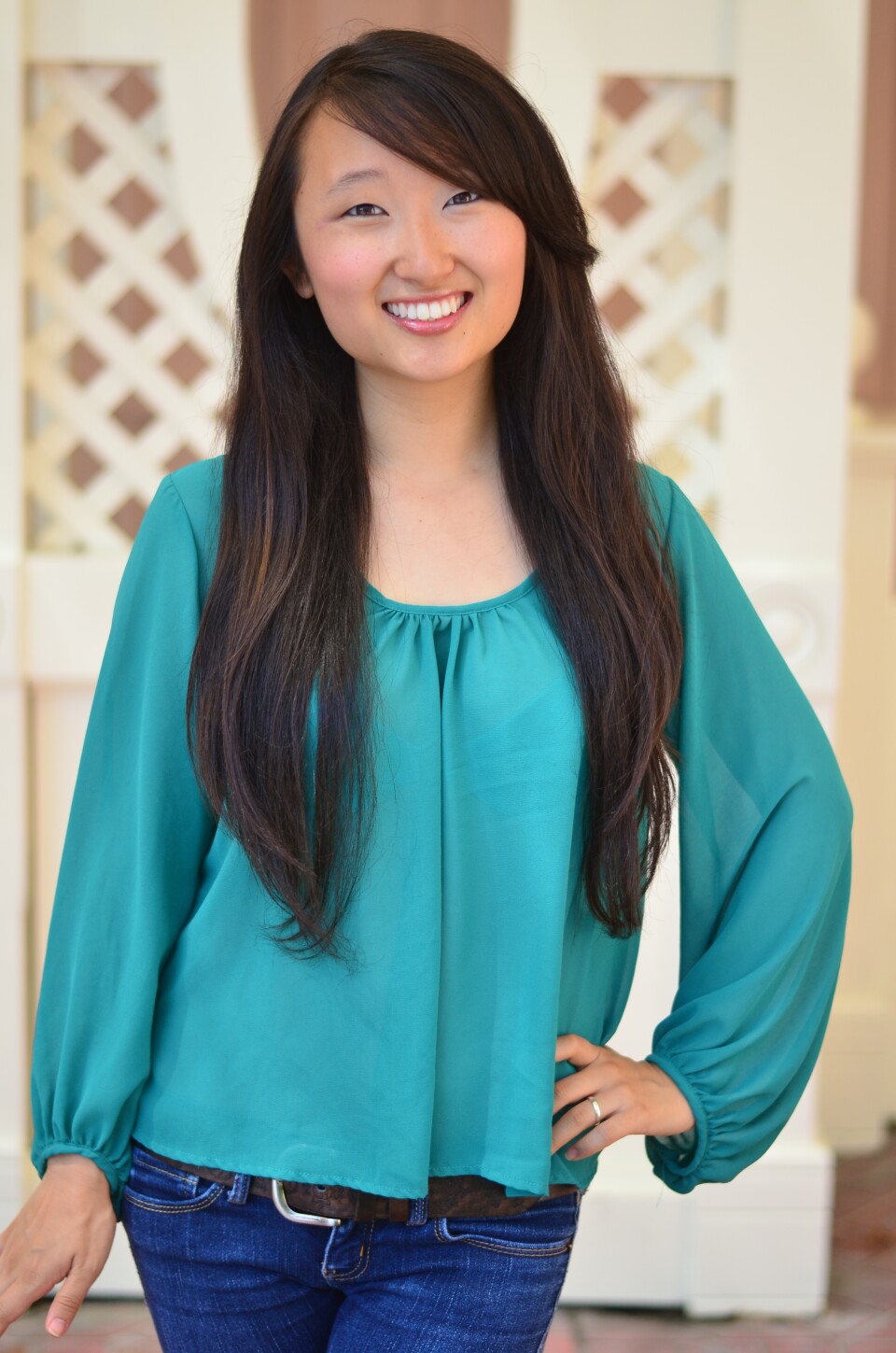
Gloria Ahn on the different millennial priorities:
"I don't think there are specific things for millennials anymore. So for me, if I get a house which is a huge goal of mine, then awesome, but if I don't, it's not the end of the world. I have other goals in place.

Nichole Rupp on the pressures specific to millennials:
"I think that theres a tremendous pressure to make your life worth something. I think our generation as a whole is pretty aware of our privilege and so you spend a lot of your time and your efforts trying to turn that privilege into something that's bigger than yourself...I don't want to waste the time that I have and the privilege I was given."
To hear the full segment, click the blue play button above.
Millennials and buying that first home: how it's possible in SoCal
Living in Southern California can be great...if you can afford it. Planting roots in the area is not easy without access to a ton of green.
"The house that I grew up in Philadelphia went on the market about two years ago for about $300,000," says KPCC listener Kristen Koeblin. "That same house could easily go for $700,000 to $800,000 here."
It can be especially difficult for Millennials to make that big step to adulthood because several SoCal cities consistently appear in the top ten lists of worst places for first-time homebuyers, and affordability is a major factor.
"It's an exciting place to be, but it's an expensive place to be," says financial advisor Delia Fernandez, "and feel sorry for the people who grew up on the beach because typically they can't grow up and afford to buy their parents' homes."
Fernandez joined La Habra realtor Ray Fernandez (no relation) to offer advice for everyone hoping to eventually buy a home in Southern California
It's okay to start small now
"That's how I was conditioned: grow up, make some money, buy a house, start a family," says Ray Fernandez. But he suggests that people imagine that will take some time after your first home before you move into your "dream home."
"You always want to try and get your foot in the door," he says, "and you can find condos for $300,000 around here."
He shares that a friend of his was able to resell his first condo after a handful of years, using the equity from that sale to put a down payment on a larger home.
Being a tech-savvy millennial is to your advantage

"As Millennials we're very responsive," says Ray Fernandez, who's a Millennial on the upper-end of the age cutoff. "I love working with people our age because when I ask them to get something, it's like, 'I'll send it to you from Dropbox right now.' It's that easy! While our parents are like, 'That's in a file cabinet up in an attic.'"
Millennials can also benefit from the realty websites that aggregate information in a way that wasn't possible to find easily generations ago. So finding a 3 bedroom with a soapstone countertops with a park within a half-mile is easy as pulling up Zillow and Google Maps.
It's okay to take on a mortgage if you have student loan debt...to a point
"Student loans aren't the boogie man," says Delia Fernandez, "but a lot of people don't manage their student loans well."
She advises that people start to save as early as possible regardless of whether they are thinking about buying a home.
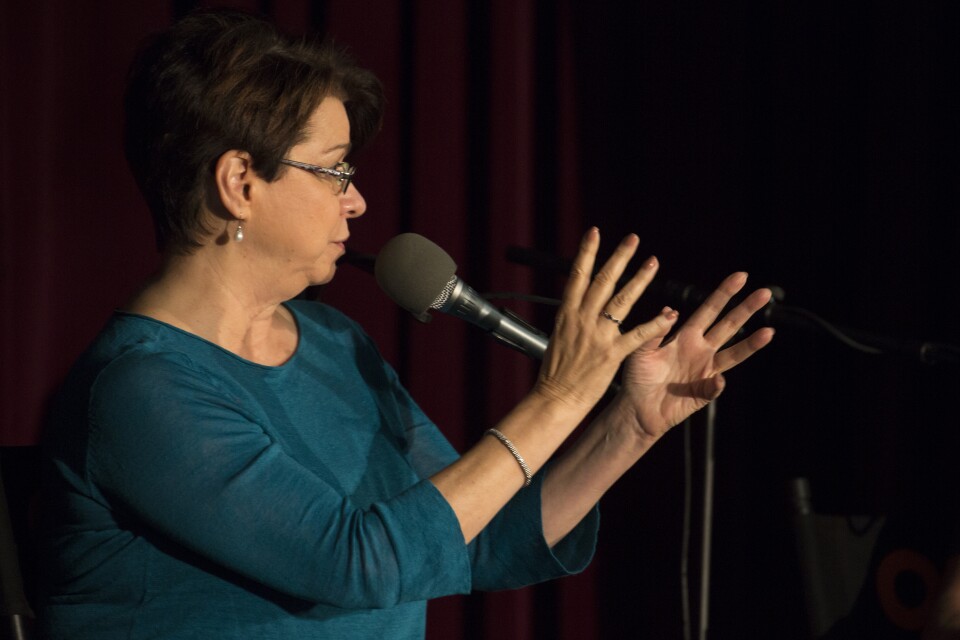
And more importantly: live within your means.
"Don't load up right out of school saying, 'I've got student loans and I'm doomed anyway, so I might as well buy a car,'" she says. "Let's not spend all of our money on lifestyle, and make sure there's room in your budget to save some money."
Delia Fernandez says that there may come a point when you want to buy a home, and you should to be in the best possible position because of the years you spent being responsible: do you have enough saved up for a down payment? Do you have a good credit score?
And if a home isn't in the cards...
A home can be a way to envision how you'll be living out your later years, comfortable in a living room with grandkids running around.
However, it is not the nest egg that it used to be, and renting can be just as viable in Southern California.
"But that means you have to build wealth some other way," says Delia Fernandez. "Is it going to be an Instagram account that is making you money or is it a 401k that grows?"
Regardless of the chosen path, Delia Fernandez and Ray Fernandez suggest that Millennials make their choices carefully and cautiously let the realities of the Southern California housing market temper their dreams of what living here means.
Divided by deportation: Immigration and Generation Y
Here in Southern California, thousands of millennials are experiencing the "American Dream" through the lens of immigration.
One of them is Carol Romo. Her life changed when officers from the U.S. Immigration and Customs Enforcement knocked on the door early one morning in 2006, just as Carol was getting ready for water polo practice.
The agents came for her father, Nicholas who was taken away, leaving Carol, her mother and her siblings. Soon, they would all move back to Mexico, leaving Carol with some tough choices.
"I pleaded to stay [in the U.S.] It was, I think one, of the toughest decisions I've made. I had to decide either my future or I tag along and who knows what I'll end up doing in Mexico? My mom along with my grandparents were very hesitant because I was only 16. And I told her that I was halfway through high school, to let me stay, let me finish and I wanted to get a career."
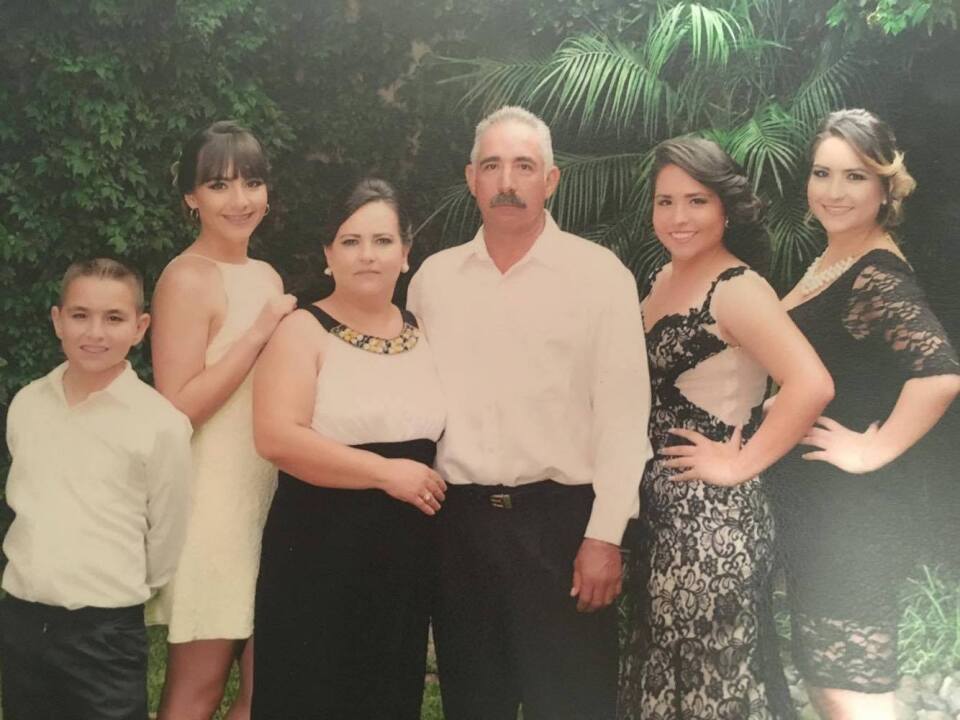
With her parent's blessing, Carol remained in the U.S. and stayed with an aunt and uncle through the rest of high school and a few years afterward. Life after her family left was hard for Carol, she quit water polo and clubs and began the search for a job.
"It was not what I wanted but I had to. I mean, there was no one else that was going to give me money or support me financially so I had to get it myself. Luckily, my aunt, she was very kind enough for me to stay with them. It wasn't until a year or so after I started working that she was like 'oh Carol, you need to start being responsible and paying rent.' So the little money I got was, half of it was for paying rent and half of it was for my expenses."
Carol went on to attend college and graduate with her bachelor's in Health science. Today, she's the Manager of Clinical Operations at North Orange County Regional Health Foundation. Before she was separated from her family at the age of 16, Carol's parents were fighting for their residency:
"They had their work permits, so they were working legally. They were paying taxes, that's how they were able to purchase a home. The judge told my parents, if you have siblings who live in Mexico and they're able to live with their families and carry on a normal life, so can you. And he denied the case. We appealed, my parents tried to fight back and ask 'Why, we've been in the U.S. for over 20 years.' they still denied the case. We ask ourselves why...until now my mom still questions herself, why did it happen? Why was it us?"
Carol is now 25 years old and currently in the process of filing for her parents to come back to the United States after a decade apart.
To hear all of Carol's story, click the blue play button above.
Millennial politics: Which candidate has done the best job at appealing to young voters?
Whether you're a political newcomer or no stranger to the polls, this year's race to the White House is hard to ignore.
Hillary Clinton leads the pack for the Democrats, with Bernie Sanders still in the contest. For the Republicans, Donald Trump, the longtime frontrunner, continues to command attention.
Regardless of party, all of the candidates are trying to find ways to appeal to millennials; for the first time, Generation Y will make up the same proportion of the voting population as Baby Boomers.
So who's doing the best job of appealing to the millennial voting bloc?
Take Two put that question to three guests:
- Kelsey Brewer, political science major at Cal State Fullerton and student trustee to the Cal State System
- Mary Perez, political science major at USC and vice president-elect for the USC GOP
- Sarah Hill, associate professor of political science at Cal State Fullerton
Kelsey Brewer

"I think [there has] been — on both sides of the aisle — a little bit of pandering. And I don't use that in a negative connotation. I think that millennials have been engaged and are going to be the largest voting block and so that's forcing candidates to begin to speak to issues that impact millennial voters. I think they've gone about it in different ways. I think the success of Barack Obama's campaign both in 2008 and 2012 is that he was a pioneer in the way that social media was used to reach out to voters, and I don't think that anyone in this election has been able to rise to that level of engagement from youth voters, at least with respect to social media."
Mary Perez

"There are three words that I like to say about the Republican Party: divisive, angry, and unsure of where to go next. My friends, my peers, other politicos, are afraid of what's going to happen in the next few years. You know, we had the McCain loss and then Romney, and I think you see the separation and divide of the Republican Party. Now [the establishment] is now saying, 'we're going to rally behind Ted Cruz because we absolutely don't want Donald J. Trump to be our nominee. And that's something that I never thought that I would see."
Sarah Hill
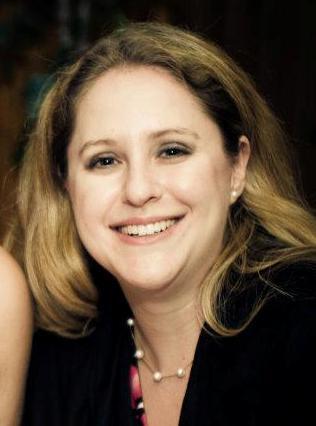
"When I was in college, we had the 2000 presidential election, and I think [today it's] very similar. Today you have some students who are highly engaged. Probably most millennials I see are aware and sort of know, but they don't know detailed information. They don't understand nuances. And I think that's what I saw back in the day. The biggest change would be social media — those who are involved definitely use it like crazy, and we didn't have that in 2000. But I think the level of information isn't all that different."
Press the blue play button above to hear the panel.
Millennial Matters: Understanding campus activism
Campus protests, Black Lives Matter, and other social justice campaigns have dominated the news for almost two years, following the police shooting of Ferguson, Missouri teen, Michael Brown.
So it's no surprise that a UCLA survey of college freshman found that 97 percent of students witnessed at least one protest before their first year.
A further nine percent said there's a good chance they'll take part in a demonstration before graduation.
Why is Gen Y one of the most active generations in half-a-century?
Three millennials shared their thoughts. Here are some highlights.
Tyree Boyd-Pates
“There’s always going to be a reactionary response to racism, discrimination, sexism and transphobia at all times. And what we’ve realized is that, whenever there is some kind of backlash, students are beginning to realize that they have an agency that they must assert, and with that agency and that assertion, they know what they have a voice that they can wield to transform their universities and campuses...”

____________________________________
Destiny Caro
"Every so often, when you start to see the back of history [and you see] this [hasn't] been possible before — why do we feel like we have equal rights now? Even though we don't. I think we — kind of — look back and reflect on ourselves and where we are ... we want more out of this. We don't want to hide, we want to be ourselves. Everyone else gets to be themselves, and we feel like we get the right to do so also."
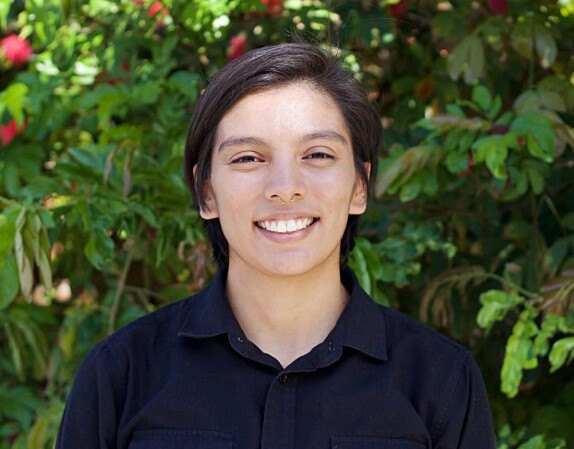
____________________________________
Gloria Alonzo
"Social media allows visibility. It allows information to travel in — I daresay —in seconds ... I'll talk about Black Lives Matter. That has started a movement across the nation. Different cities have organized protests just through Twitter. Social media is a big part of our everyday lives, and then especially now is helping activism and activists be able to move quicker and I guess that kind of intimidates higher up people."

Jobs v. Education: Why Millennials are going into business for themselves
Millennials are one of the most educated populations in the United States, mainly thanks to the 2008 recession. Many in Generation Y chose to stay in school to ride out the economic downturn, and with millennial unemployment rates at 8 percent, it explains why large numbers are continuing the trend.
On the other hand, some millennials are walking a different path as entrepreneurs.
For more on why growing numbers of Generation Y are drawn to independent business ventures, A Martinez sat down with:
Sophia Parsa, co-founder of the tutoring app - TOOT
Curt Cuscino, CEO of the millennial branding agency, Hype Life
John Jackson, Director of Cal State Fullerton's Center for Entrepreneurship
Please click on the blue button to listen
Not forever alone: 6 insights from the Millennial Love Expert Samantha Burns
Millennials are known as digital natives, and technology and social media are used for everything from activism to romance.
But when it comes to love and dating, what are the particular challenges facing Generation Y?
One woman has made it her mission to find out. Samantha Burns is the millennial love expert based out of Boston, Massachusetts. She is also a millennial herself.
Samantha shared these insights when it comes to millennials and dating:
What makes millennial dating frustrating?
"I think that they are very frustrated right now with the lack of commitment that they're seeing in relationships to some degree early on. So once they're in relationships, they're really good about maintaining long-term relationships, but just getting into them is the place where they are struggling."
On what has shaped this generation's ideas about love an commitment:
"I think the big answer is obviously the online dating and app dating. The online dating sites have been around since the 90s, but with smartphone technology, we saw the boom of the Tinders, the Bumbles, and all of these different dating apps where literally this next relationship is at the swipe of a finger away, and that's really changed the dynamic of finding someone."
The biggest dating complaint from millennial women:
"Millennial women complain the most about not getting commitments, and they feel as though the guys are only looking for a hookup. But research actually shows that only a minority of people are actually sleeping together on a first date, and the majority of dating app users report wanting a relationship. So they're frustrated, feeling like no guy out there wants a commitment. There is a shift between college-age millennials and the slightly older, post-grad millennials. More people are looking to settle down as they age, but definitely college students are frustrated with the lack of commitment — college women, I should say."

And what about millennial men?
"I think they're frustrated with online dating because they don't always get a lot of messages back to their initial messages, so I tell people that, first of all if you're only messaging and matching with really attractive women, they're probably getting a ton of messages, so they're being selective in who they're responding to. And if you yourself haven't filled out the profile fully, why should they want to invest in you if you're not showing that you're a quality person? So No. 1, if you're one of those guys with this complaint, fill out your profile so that people can see if they actually like you. And then also, don't just say hello. You know, send a thoughtful message where you're engaging in a question based on their profile information, or saying something witty is obviously fun. So I tell people to almost jump in, almost as if you've known this person, and crack a joke with them, or tease them a little and insert one of those winky-face emojis, because obviously it's hard to tell if you're being sarcastic through text messaging."
Why there's nothing wrong with waiting to marry the right person:
"Millennials are the generation of soul mates, because we are the first generations in thousands of years that aren't getting married just to have babies or to buy property together, we're getting married because we are looking for that one person that we think is our lifelong partner. And this is really great because it allows us to focus more on the quality of the relationship than all of those external factors like baby-making."
What she has to say to those who don't believe millennials are capable of love and commitment:
"I'm actually really optimistic about long-term commitments and marriage for the millennial generation. We've been seeing a trend of cohabitation where millennials are living together for longer before marriage, and this is actually really great because it allows them to test out the relationship, to figure out if they can work through conflict, if this is the person that they really want to be with. So naturally, some of those relationships are going to end or dissolve, and that way, they don't have to deal with the legality of marriage if it didn't work out. And the people who are choosing to get married have then kind of tested out their relationship for a while before getting hitched. So, I feel optimistic that we're going to see a trend of longer, happier marriages, it's just going to start later in life than it has in past generations."
Samantha Burns is a licensed mental health counselor who specializes in treating couples and individuals with relationship issues in her Boston-based private practice. You can follow her on , Facebook, and Instagram.




